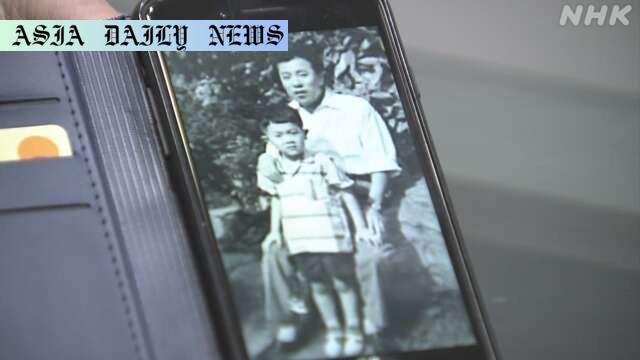Baby Mix-Up: Tokyo court orders officials to track biological parents of a man switched at birth in a 1958 hospital blunder.

Introduction to the Baby Mix-Up Case
The Tokyo District Court recently delivered a landmark ruling addressing a tragic hospital mishap from 1958. The case centers on Egura Satoshi, a man who unknowingly lived most of his life away from his biological parents due to a baby mix-up at a maternity clinic run by the Tokyo metropolitan government. This court decision sheds light on not only the profound ramifications of such errors but also on the larger societal implications of one’s right to know their origin.
The Discovery of the Mix-Up
Born in 1958, Egura Satoshi was raised by parents who were, unbeknownst to him, unrelated by blood. During his 40s, after questioning certain inconsistencies regarding his parents’ blood types, Egura underwent DNA testing. The results confirmed that he was not biologically related to the parents who had raised him. This realization was both a revelation and a burden, sparking over two decades of frustration as Egura sought answers and accountability regarding his biological origins.
The Legal Proceedings and Court Ruling
In 2021, Egura took legal action against the Tokyo metropolitan government, arguing that he possessed an inherent right to know his biological identity. The court recognized this right as falling under the Constitution’s safeguards for individual respect and dignity. Countering governmental concerns about privacy infringement, the court clarified that potential subjects of the investigation could opt out but emphasized that some may indeed wish for truth and closure. This ruling marked a significant moment in highlighting society’s moral and constitutional obligations toward victims of systematic failures.
Victims’ Emotional Journey
Egura’s narrative is deeply intertwined with a painful emotional journey. While his biological parents’ identities remain unknown, Egura maintains profound gratitude for his adoptive parents, visiting his ailing mother, who now suffers from dementia, regularly. Adding to the tragedy, his adoptive father passed away a decade ago. Yet, Egura also expresses sympathy for his adoptive mother, describing her as a victim who likely harbors her own hopes of reuniting with her biological child. This emotional complexity underscores the far-reaching consequences of the mix-up not only on Egura but also on his adoptive and biological families.
The Court’s Call to Action
In its ruling, the court ordered the metropolitan government to investigate Egura’s biological origins. This involves tracing family registers and requesting possible candidates to undergo DNA testing. This decision, while legally and ethically significant, also begins to address the emotional wounds inflicted by the hospital’s mistake. For victims like Egura and his adoptive mother, the verdict offers hope of closure and healing.
Conclusion: Implications and Future Steps
This case sets an important legal precedent in Japan, reflecting society’s evolving views on individual rights and the responsibility of institutions. It also calls attention to potential systemic challenges, such as balancing privacy concerns with justice and truth. Moving forward, the implementation of better hospital protocols and stronger government accountability will be crucial in preventing such tragedies. For now, Egura’s pursuit for answers stands as a poignant reminder of the need to respect and address the emotional and legal ramifications of such errors.
Commentary
The Right to Know Biological Origins
The Tokyo District Court’s recent ruling on the 1958 baby mix-up case brings to forefront an important ethical consideration: the right to know one’s origin. This case resonates with many as it challenges the government’s initial hesitation to act and offers a hopeful resolution for those seeking identity clarity. The court’s decision also validates the emotional toll such errors can impose, not just on one individual but their entire family network.
The Balancing Act Between Privacy and Truth
One of the most striking aspects of this case is the debate surrounding privacy concerns. While the Tokyo metropolitan government initially resisted the investigation, citing potential privacy infringement, the court emphasized that people can refuse participation in such inquiries. However, this decision opens the possibility for healing and connection for families impacted by past errors. It underscores the idea that truth sometimes overrides individual boundaries in cases of historical harm.
The Emotional Toll on Victims
Egura’s profound gratitude for his adoptive parents, despite the mix-up, is deeply moving. His acknowledgment of their unintentional victimhood humanizes the broader implications of this tragedy. Additionally, his statement about the years of frustration since learning the truth highlights the psychological impact of identity uncertainties and the longing for family connections. The court ruling, while a step in the right direction, cannot undo these years of turmoil. However, Egura’s persistence may inform future cases and inspire systemic improvements.
Closing Thoughts
The 1958 mix-up case is an emotional reminder of the fallibility of human systems. While it cannot erase past errors, this case demonstrates society’s collective responsibility to address victims’ rights and emotional needs. The ruling not only sets a legal precedent but also marks progress in recognizing and rectifying injustices. As more discussions emerge on individual identity rights and systematic accountability, cases like Egura’s remind us of the importance of empathy and continuous progress toward justice.


